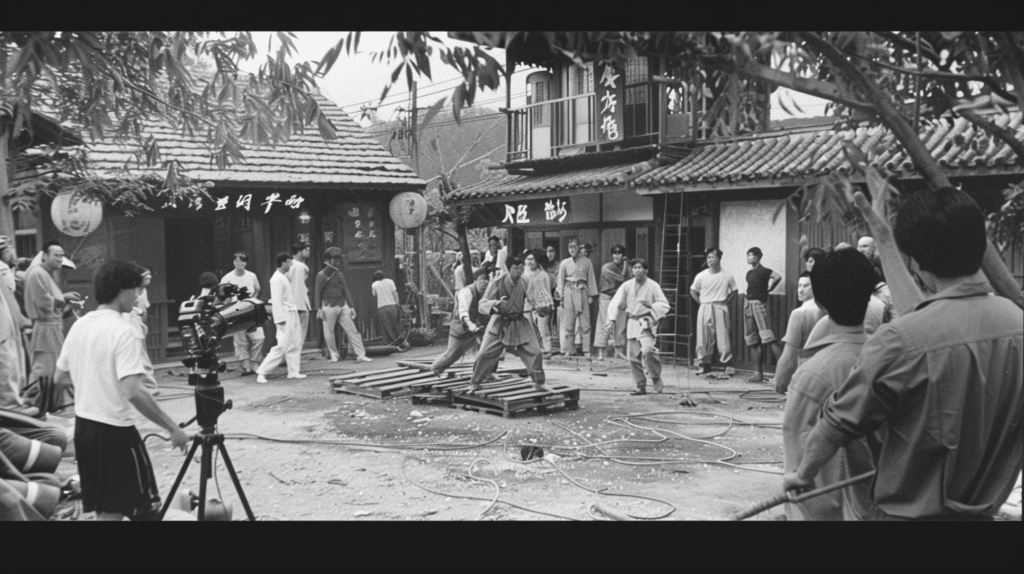
Introduction: Unveiling the Mystique of Kung Fu
An ancient Chinese art, Kung Fu captivates endless imaginations with its deep tradition: a diverse tapestry of styles; techniques – and philosophies. Yet– amidst the mystique that cloaks this practice in an enchanting haze— one persistent question lingers… Is Kung Fu truly effective for modern combat or self-defense scenarios? In this exploration, we delve into the essence of Kung Fu: we scrutinise its practicality and effectiveness – all while pondering a crucial question; how does it sustain enduring relevance in our modern world?
Understanding the Essence of Kung Fu
Kung Fu, at its core, is not merely a form of physical combat; rather it encapsulates an all-encompassing discipline that harmonizes mind-body-spirit. The conception of Kung Fu took place within the Shaolin Monastery: an art devised for monks’ self-defence against marauders and wild beasts – a defence mechanism which concurrently fostered their spiritual development whilst underpinning stringent discipline. The principle of balanced equilibrium–fundamental to Kung Fu–harmonizes with the laws of nature: this serves as our wellspring for inspiration – encompassing not only animals but also philosophical tenets like Taoism and Confucianism into its very DNA.
The Myth of Hollywood Versus Reality: Dispelling Misconceptions
Hollywood undeniably: with a fervent and proactive stance, it perpetuates the romanticised image of Kung Fu – presenting its practitioners as invincible warriors capable of exceptional feats; this influence is profound. However, discerning reality from fiction still holds paramount importance in assessing the efficacy of Kung Fu—an art demanding rigorous investigation and comprehension. Indeed, cinematic depictions often showcase acrobatic stunts and stylised choreography. However, traditional Kung Fu techniques often diverge from their practical applications within real-world scenarios; this highlights an essential contrast.
Evaluating Effectiveness: Practical Application in Combat
A thorough examination is necessary to assess the effectiveness of Kung Fu: we must scrutinise its application in combat situations. Various styles–from Wing Chun to Tai Chi and Shaolinquan–encompass this martial art; each style carries unique techniques and strategies. The efficacy, however, significantly depends on factors such as training methodology, practitioner skill level, and adaptability to modern combat dynamics; therefore understanding these components is crucial for us.
Training Methodology: The Crucial Foundation
Essential to mastering Kung Fu is rigorous training: a traditional approach that instils discipline–a critical attribute for effective combat performance. This includes forms (kata), drills, sparring and conditioning exercises; crucial elements in this process are focus along with physical conditioning. However, heavily hinges on two factors—the realism of its applications within practical combat scenarios and the intensity of employed training methodologies.
Practitioner Skill Level: Mastery Through Dedication
Practitioners of Kung Fu ultimately determine its effectiveness through their proficiency and adaptability. Mastery in this art necessitates dedicating years to practice, refining techniques, and cultivating a profound understanding of body mechanics, timing, as well as distance. With effortless transitions between offense and defense; skilled Kung Fu practitioners employ strikes—blocks—joint locks or even throws with precision: they execute fluid movements that stand as a testament to their expertise.
Adaptability to Modern Combat Dynamics
In today’s ever-evolving combat landscape, we often question the effectiveness of traditional martial arts like Kung Fu. We can trace Kung Fu’s historical roots back to ancient battlefields and monastic traditions; its principles, though, still bear relevance for contemporary self-defence scenarios. To apply Kung Fu techniques effectively it is a prerequisite to adapt to modern combat dynamics – these include awareness towards multiple attackers and defence against weapons: furthermore integration with other martial arts and combat systems are essential.
The Evolution of Kung Fu: Contemporary Perspectives
Kung Fu, originating in antiquity, actively evolves and adapts to meet the demands of our modern world. It integrates athleticism elements, sports science principles, and practical self-defense techniques into current training methodologies; therefore appealing to a broad spectrum of individuals: from those rooted deeply within tradition–to fervent fitness enthusiasts -even extending its benefits towards law enforcement personnel.
Conclusion: The Enduring Legacy of Kung Fu
Kung Fu’s effectiveness conclusively surpasses mere combat prowess, encapsulating a profound philosophy of self-discovery, discipline and personal growth. Although the practical application in contemporary combat scenarios might vary depending on training methodology and practitioner skill level – yet Kung Fu’s essence transcends physical confrontation boundaries. We should embrace this ancient martial art form; it offers us timeless wisdom and an enduring legacy. As we delve deeper into its depths, let’s shape not only skilled warriors but also compassionate, virtuous individuals.